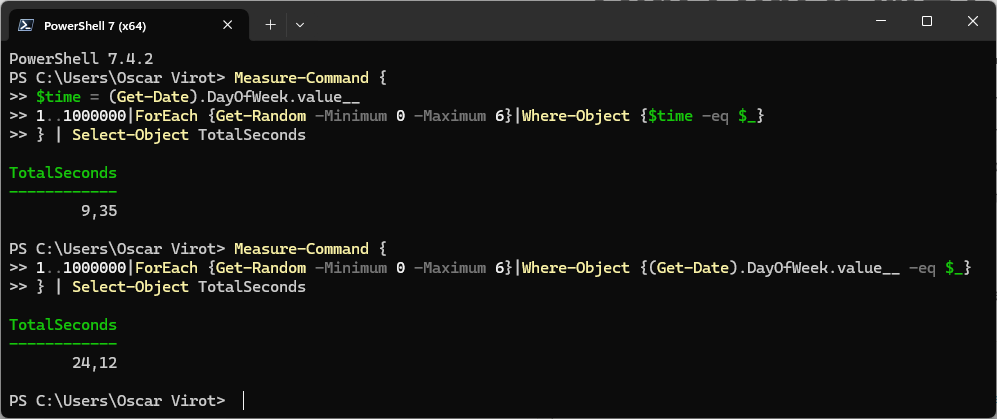When writing powershell sometimes the allure of writing good looking small oneliners might be the wrong thing.
For instance if you have a large amount of objects and then want to run Where-Object against them. If we do a oneliner and include something dynamic in a Where-Object, we will force Powershell to execute it everytime. This might be what we want BUT, if we want to compare against a computed date. There is no need to calculate what day it was 7 days ago each time.
To prove my point I have written a small powershell script. It will generate 1 000 000 random numbers between 0 and 6, it will then compare it to the current day of week.
Measure-Command {
$time = (Get-Date).DayOfWeek.value__
1..1000000|ForEach {Get-Random -Minimum 0 -Maximum 6}|Where-Object {$time -eq $_}
} | Select-Object TotalSeconds
Measure-Command {
1..1000000|ForEach {Get-Random -Minimum 0 -Maximum 6}|Where-Object {(Get-Date).DayOfWeek.value__ -eq $_}
} | Select-Object TotalSeconds
Findings…
But then again if we decide not to use Cmdlets (which is the recommended way) and go the .NET way. We get a new result. As always .NET is faster, but not as easy to read. If you want it realllly fast, you can code it in Assembler.
Measure-Command {
1..1000000|ForEach {Get-Random -Minimum 0 -Maximum 6}|Where-Object {[datetime]::Now.DayOfWeek.value__ -eq $_}
}| Select-Object TotalSecondsSo what is result for .NET?

So.. Just wanted to get this out there.